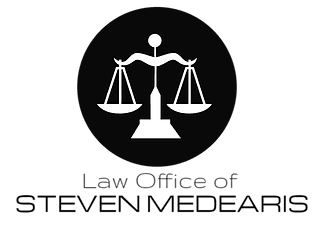CHILD CUSTODY & SUPPORT
Steve Medearis is your North County San Diego Child Custody and Child Support Legal Expert
KNOW YOUR RIGHTS
If you are in the midst of or considering divorce, it pays to know your rights. To discuss your case in a free consultation with our lawyer, contact our firm online or by calling us toll free.
CALL US NOW
We accept credit cards and arrange payment plans if necessary. Se habla español.

PROTECTING YOUR RIGHTS TO EQUAL TIME SHARING
For many families, child custody and support are among the most disputed issues in a divorce. Moreover, if you are the primary breadwinner or serve in the military, you may feel at a disadvantage when it comes to determining fair custody since you have not been the primary caretaker. To protect your parental rights, you should speak with an experienced Vista child custody attorney.
At the Law Office of Steven Medearis, we equally represent mothers and fathers throughout North San Diego through the difficulties of determining fair child custody and visitation. We take time to understand the particulars of your family and work efficiently to obtain equitable solutions.
DETERMINING FAIR CHILD VISITATION
The court generally seeks to preserve the relationships parents have with their children. However, a court makes decisions based on what it believes to be in the children's best interests. We will explain your rights as a parent as well as the various custody options available to you, given your situation. As your advocate, we seek to build a comprehensive yet detailed time-sharing plan with provisions for summer vacations, holidays and other special circumstances, in addition to day-to-day life.
CHILD SUPPORT ATTORNEY
Child support in California is calculated using set guidelines and a new computer program, which takes the individual incomes of the parents as well as their custody responsibilities into account. Judges rarely deviate from these guidelines, so we will help you understand your rights or obligations so you can be prepared for any outcome. We can also help you identify your options for modifying child support should you lose your job or suffer other unexpected financial setbacks.
"If you are in the military, the court will count your Basic Allowance for Housing (BAH) and Basic Allowance for Subsistence (BAS) stipends as income as those payments are not taxable. We can help you understand the effect this could have on your possible obligations and take steps to ensure you pay an equitable amount."
CUSTODY AND PATERNITY DEFINITIONS
Throughout the years we have helped a large number of Clients with their Child Custody issues. The four most common categories of "Child Custody" are:
- Paternity Suit
is a lawsuit, usually by a mother, to prove that a named person is the father of her child (or the fetus she is carrying). Evidence of paternity may include DNA tests (which can eliminate a man as a possible father), testimony about sexual relations between the woman and the alleged father, evidence of relationship of the couple during the time the woman became pregnant, admissions of fatherhood, comparison of child in looks, eye and hair color, race and, increasingly, DNA evidence. In addition to the desire to give the child a known natural father, proof of paternity will lead to the right to child support, birthing expenses, the child's inheritance from his father, and possible immigration rights.
- Sole Physical Custody
is when the child will live with one of the parents and the other parent may have visitation to visit the child. Sole physical custody may be granted to a parent when the other parent is deemed unfit to have physical custody of the child. According to the California Family Code section 3007, "sole physical custody" means that a child shall reside with and be under the supervision of one parent, subject to the power of the court to order visitation."
- Sole Legal Custody
can be defined as one of the parties having the responsibility for decision-making regarding the children's health, education and welfare. In some cases, the party who has sole legal custody must keep the other parent informed of all the decision made regarding the children.
- Joint Physical Custody
does not mean exact division of time with each parent, but can be based on reasonable time with each parent either specifically spelled out (certain days, weeks, holidays, alternative periods) or based on stated guidelines and shared payment of costs of raising the child.
- Joint Legal Custody means that both parents can make decisions for the child, including medical treatment, but where possible they should consult the other. Upon the death or disability of either parent, legal custody will go to the remaining parent and will give the active parent the sole ability to act as parent for the child without further order of the court.
The Court can always change custody and/or visitation orders based on change of circumstances that may affect the "well being" of the children.
TWELVE STEPS SUGGESTED FOR SEPARATED OR SINGLE PARENTS IN
DEALING WITH CHILDREN (BOTH PARENTS)
I.
Never make visitation arrangements directly with children under age 12.
II.
Never suggest visitation arrangements you have not previously discussed with other parent. Always confirm with the other parent any visitation arrangement made with children under 12 and over.
III.
Send and return children who are clean, well-rested, and fed. Do not send or return a snack or suitcase full of soiled clothes.
IV.
Do not discuss divorce or separation disputes with your children or allow them to hear you discussing your differences regarding them.
V. Do not send messages or money with your children.
VI.
Do not speak ill of the other parent- or of his or her relatives, friends, or loved ones.
VII.
Do not ask your children for information about the other parent's household, friends, income, or activities.
VIII.
Do not believe everything you hear from your children.
IX.
Do not second guess the other parent regarding discipline, rewards, or anything else.
X.
Give a sympathetic ear to your children, but affirm and reaffirm as often as necessary that you are not a referee or a mediator between your children and the other parent.
XI.
Be courteous in all your dealings with the other parent.
XII.
Put the child's interest before your own.



